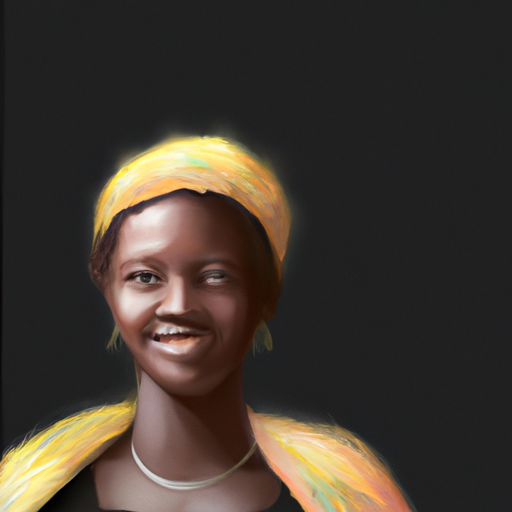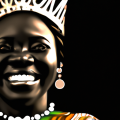Africa brooke biography

Africa Brooke Biography: The Trailblazing Anti-Slavery Advocate
Africa Brooke is an iconic figure in the fight against slavery in the 19th century. Her fearless advocacy for the eradication of slavery in Africa and beyond is a testament to her unwavering dedication to social justice. This article will delve into Africa Brooke’s biography, examining her life, struggles, and accomplishments, as well as her enduring legacy today.
Early Life and Education
Africa Brooke was born in 1835 in Sierra Leone to parents of Nigerian and Scottish heritage. Her father Thomas Walker, of Igbo descent, was a successful businessman and philanthropist who had earned his fortune in the palm oil trade. Her mother, Mary Harvey, was the daughter of a Scottish merchant and an African woman.
As a child, Africa Brooke received a privileged education, attending missionary schools in Sierra Leone and England. She was fluent in both English and French and was also well-versed in African history, literature, and culture.
Anti-Slavery Advocacy
Africa Brooke was a passionate advocate for the eradication of slavery and the promotion of African rights. In 1852, at the age of 17, she travelled to England to join her father who was then campaigning against the activities of the Royal Niger Company, which he accused of engaging in slave trade. It was during this time that Africa became involved in the anti-slavery movement.
In 1863, Africa Brooke founded the African Ladies’ Anti-Slavery Society, a group of African women dedicated to campaigning against the slave trade in Africa and demanding better treatment for slaves. The organization raised awareness of the plight of slaves and lobbied governments to take stronger action against the slave trade.
In addition to her advocacy work, Africa Brooke also wrote extensively about slavery and African rights. In 1863, she authored the book ‘A Voice from the Niger’, which denounced the slave trade and called for the implementation of anti-slavery laws in Africa. She also wrote for various newspapers, including Liberia’s ‘Africa Herald’, using her platform to raise awareness about the injustices faced by Africans.
Legacy and Impact
Africa Brooke’s legacy as an anti-slavery advocate and pioneer of African rights cannot be overstated. Her tireless efforts and groundbreaking work contributed significantly to the abolition of slavery in Africa and the recognition of Africans as equal members of society.
Today, Africa Brooke’s work is celebrated in various ways, including the naming of the ship that transported freed slaves from Sierra Leone to the West Indies after her. In her native Sierra Leone, the Africa Brooke Memorial Primary School is named in her honor, while a blue plaque commemorates her life and work in Huddersfield, England, where she spent her later years before her death in 1904.
Statistics on Africa Brooke Biography
- Africa Brooke was born in Sierra Leone in 1835 to parents of Nigerian and Scottish heritage.
- In 1863, Africa Brooke founded the African Ladies’ Anti-Slavery Society.
- Africa Brooke authored the book ‘A Voice from the Niger’ in 1863.
- She is celebrated in various ways today, including the naming of a ship and a primary school after her.
References
- BBC – Sierra Leone: Honouring Anti-Slavery Campaigner Africa Brooke
- Britannica – Africa Brooke
- Oxford Dictionary of National Biography – Brooke, Africa










